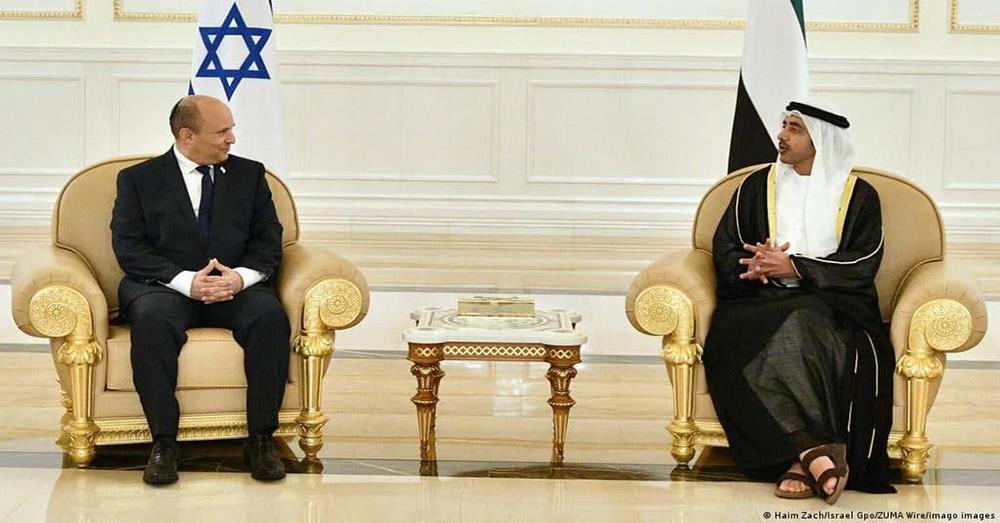ABU DHABI, Dec 13 (AFP) - Israel's Naftali Bennett arrived in the United Arab Emirates on Sunday (Dec 12) for the first official visit by a prime minister of the Jewish state, after the countries established diplomatic ties last year.
The trip announced by Bennett's office comes with Israel making a renewed diplomatic push against international talks which global powers resumed with its arch foe Iran over the Islamic republic's nuclear programme.
Bennett on Monday meets Abu Dhabi Crown Prince Sheikh Mohammed bin Zayed Al-Nahyan to discuss "deepening the ties between Israel and the UAE, especially economic and regional issues," the prime minister's office said.
There was no immediate comment from the UAE on the visit which Bennett called "historic".
He was received in Abu Dhabi by UAE Foreign Minister Abdullah bin Zayed Al-Nahyan and an honour guard, according to his office.
The prime minister said he appreciated the "very warm hospitality".
"I'm very excited to be here ... as the first official visit of an Israeli leader here. We are looking forward to strengthening the relationship."
In a video issued earlier, Bennett said relations between the two states were "excellent and extensive, and we must continue to nurture and strengthen them, and build the warm peace between the people".
The UAE last year became the third Arab nation to establish full diplomatic relations with Israel after Egypt and Jordan.
Bahrain and Morocco then followed as part of a series of deals brokered by then US president Donald Trump. Sudan also agreed to normalise ties with Israel under the Abraham Accords, but full relations have not yet materialised.
The agreements were negotiated by Bennett's predecessor, Benjamin Netanyahu, who said they would offer Israel new regional allies against Iran and bolster its diplomatic efforts to stop Tehran from acquiring nuclear weapons.
Iran and world powers have resumed negotiations on the frayed 2015 nuclear deal that offered Iran sanctions relief in exchange for curbs on its nuclear programme, which Tehran says is civilian in nature.
Trump unilaterally withdrew the United States from the nuclear deal in 2018 and stepped up sanctions against Iran.
Talks in Vienna now aim to bring the United States back into the deal and return Iran to full compliance with its commitments.
Bennett has called for the Vienna talks to be halted, accusing Tehran of "nuclear blackmail" and charging that it will use any revenue from sanctions relief to bolster a military arsenal that can harm Israel.
UAE national security adviser Sheikh Tahnoun bin Zayed Al-Nahyan earlier this month visited Tehran, where he met Iran's ultraconservative President Ebrahim Raisi.
The trip was the first of its kind since relations between the two countries were downgraded in 2016.





